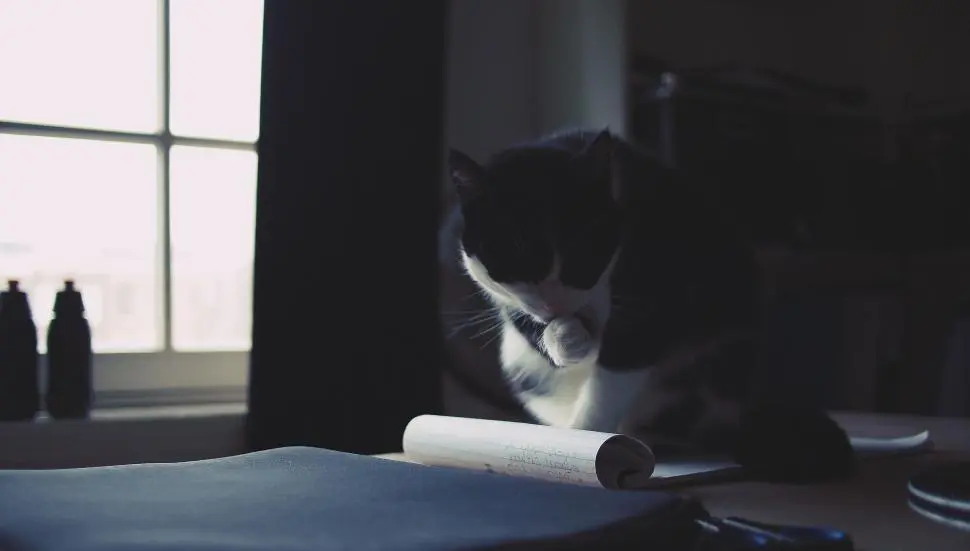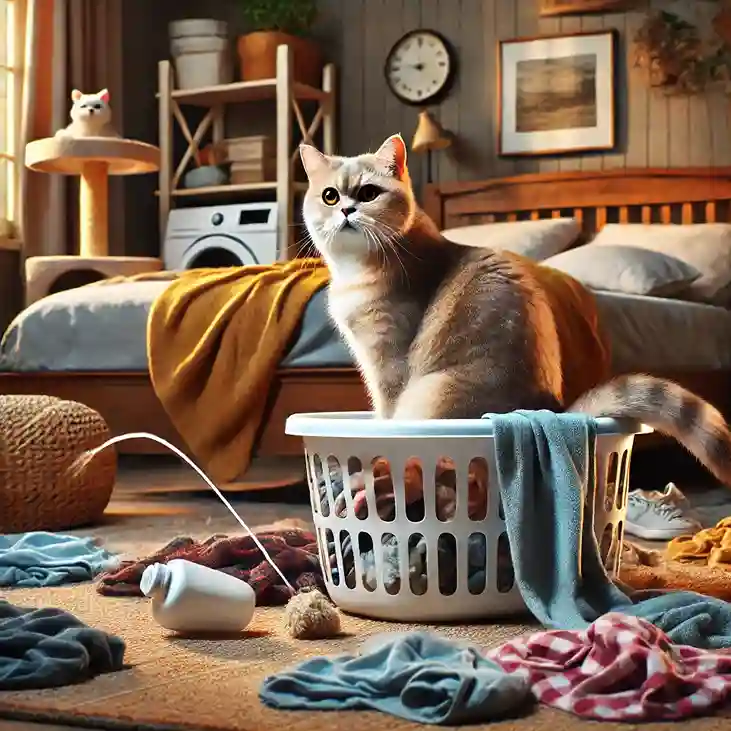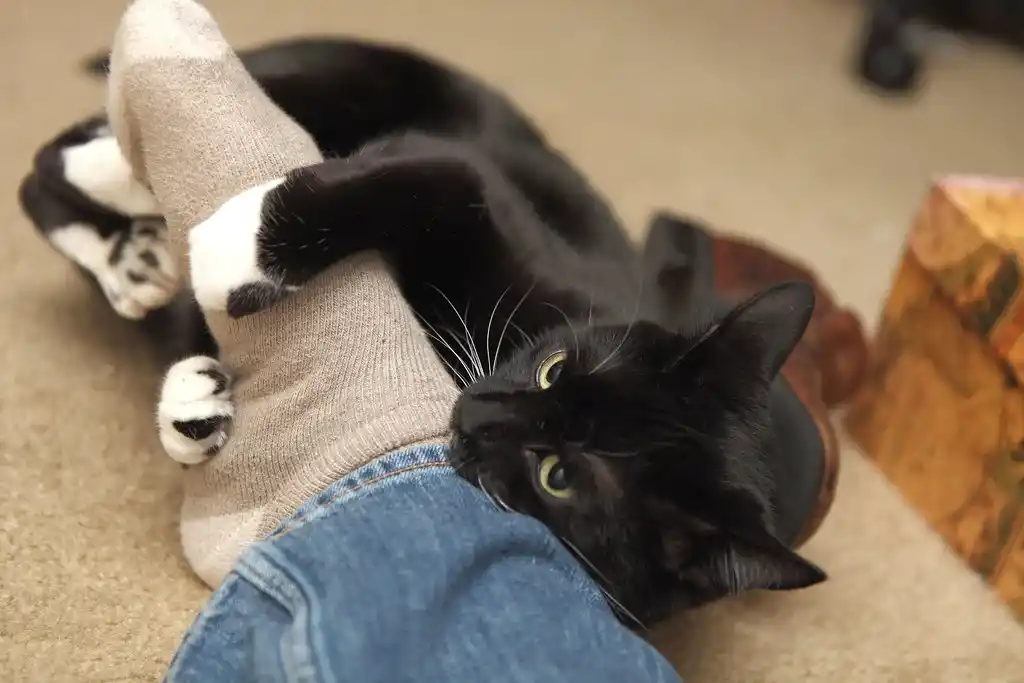Why does My Neighbor’s Cat So Obsessed with Me?
Why does My Neighbor’s Cat So Obsessed with Me? Cats have consistently been fascinating creatures due to their unpredictable and anonymous nature. You are not alone if you have observed your neighbor’s cat becoming excessively comfortable towards you. It may be confusing and even entertaining to observe a cat that does not belong to you rubbing with your legs or following you. However, what is the reason for this? What is the reason for your neighbor’s cat obsessed with you? We will talk about the reasons for this behaviour, what it means, and how to deal with a cat that seems to have become attached to you in this article. We have something for everyone, no matter how much or how little they know about cats. 1. The Curious Case of Your Neighbor’s Cat Cats are famous for their selective attachment and independence. As a consequence, when a cat forms a strong connection to someone other than its owner, it may lead to a variety of problems. What is the cause for your neighbor’s cat to always be in your doorway, rubbing up against your legs, or following you about the neighbourhood? Is it feasible that this is an expression of affection? Is there anything else in play? It is imperative to acknowledge that cats have complex emotional lives. A variety of variables determine their relationship with people. In This article we will examine the underlying causes of these behaviours and provide suggestions for managing your relationship with your neighbor’s cat. 2. Understanding Feline Attachment Before we dive into why your neighbor’s cat has an attraction with you, it’s important to understand how cats form emotional bonds. Cats are solitary hunters, in contrast to dogs, who are playful animals that seek to create friendships quickly. But they have the capacity to establish profound emotional connections, particularly with people who provide them with consistent safety, care, and attention. Felines are very observant creatures. They notice patterns in behavior, and they often associate certain people with positive experiences, such as food, petting, or even just a calm, comfortable environment. The bond can be more emotional than physical, and many cats can become particularly attached to people they trust, even if they aren’t their owners. 3. Why Does My Neighbor’s Cat Like Me? There are various reasons why your neighbor’s cat can be drawn to you. We will discuss the most common factors: Your Scent Cats really have a fantastic sense of smell! They might be drawn to your scent because it’s one-of-a-kind and can bring a feeling of familiarity and comfort, even if you’re not the cat’s owner. If you’ve hung out with other animals or been close to where they live, that could be why the cat seems so curious about you. Read about why your cat bites your nose. Your Demeanor and Actions Cats are great at detecting human body language. A cat will typically draw towards someone who is calm, kind, and non-threatening. Certain motions, such as bending down to their level, could cause inquiry, while revealing sympathy by extending your hand for a smell may ignite their interest. Food and Treats It might be as simple as you’ve given the cat some treats, or it sees you as a reliable source of food. Cats can easily bond with anyone who offers them tasty morsels! 4. Emotional Bonds Between Cats and Strangers You may be shocked to know that cats can build emotional relationships with people other than their owners. While it is true that many cats build bonds to their main carers, some cats widen their circle to include other persons, particularly those they feel secure with. Cats show affection in plenty of ways, including as purring, rubbing against your legs, and kneading with their paws. These acts show trust and happiness. When a neighbor’s cat rubs on your legs, it is not just being kind; it is also accepting you as a member of the family and a trustworthy character. So, although it may seem weird, the cat’s attentiveness is an example of emotional attachment. 5. Neighbor’s Cat Behavior Explained To assist you comprehend what’s going on, here are some sign that your neighbor’s cat wants your attention: Purring and Kneading Purring is often connected with satisfaction, but it may also be a means for cats to express love. Kneading is another sign of comfort. If your neighbor’s cat is performing these behaviours around you, it’s a good sign that it’s looking for more than just your attention—it wants to feel protected and loved. Following You Around A cat that follows you may be showing a level of attachment, especially if it consistently appears when you’re around. This behavior could also mean that the cat is curious and sees you as someone worth checking out regularly. Staring or Direct Eye Contact Even if it hurts, cats will look you straight in the eyes to say, “I trust you.” If a cat looks at you straight on, it usually means they feel comfortable around you Case Study: The way My Cousin Handled Her Neighbor’s Cat Becoming Obsessed With Her My cousin Sarah just moved into a new flat, and she observed her neighbor’s cat, Whiskers, appeared a touch too friendly. Sarah first thought it was adorable. Whiskers followed her around the garden, rubbing against her legs and purring. However, the behaviour quickly increased. Whiskers began following Sarah down the street whenever she went on a stroll or took out the garbage. Sarah wasn’t sure why the cat was so attached. She hadn’t done anything special other than giving Whiskers a treat once in a while. But soon, she realized that outdoor cats, like Whiskers, sometimes bond with people for simple reasons like food or companionship. Learn about why your cat pees on clothes. Understanding the Behavior Sarah learned that it’s common for outdoor cats to form attachments to people, especially if they sense warmth or kindness. It wasn’t anything personal; Whiskers just liked her presence. Setting Boundaries Sarah decided she needed to … Read more



